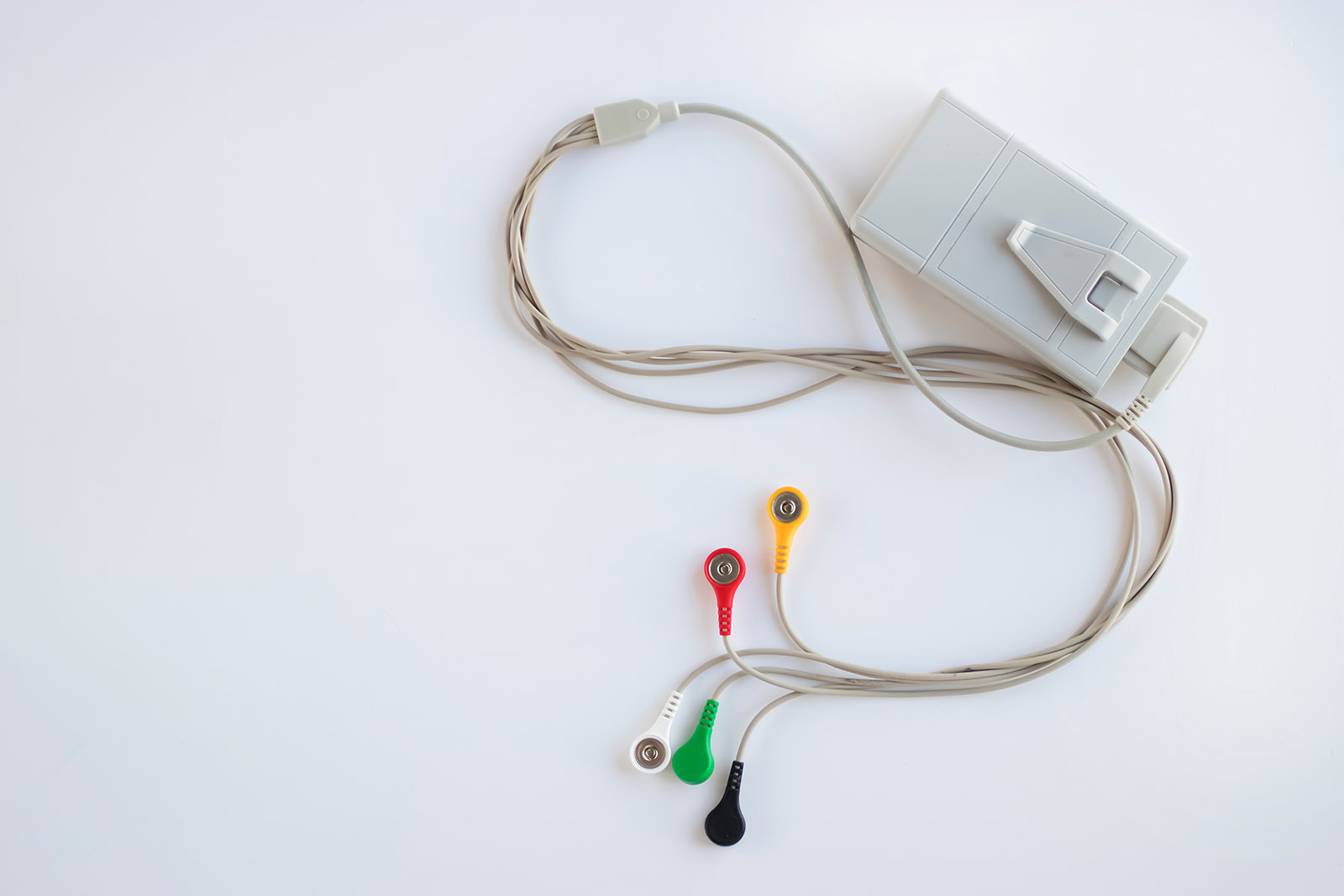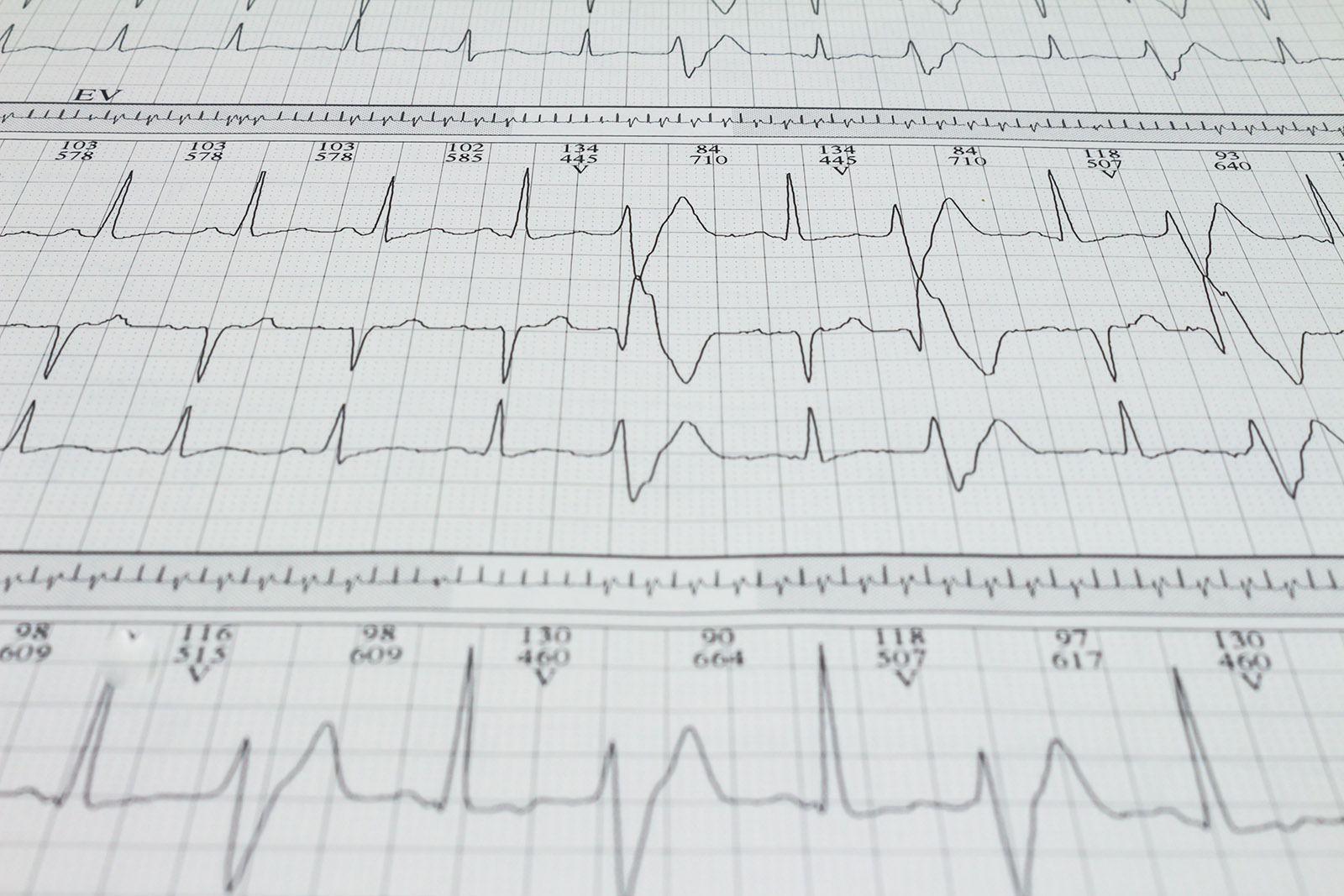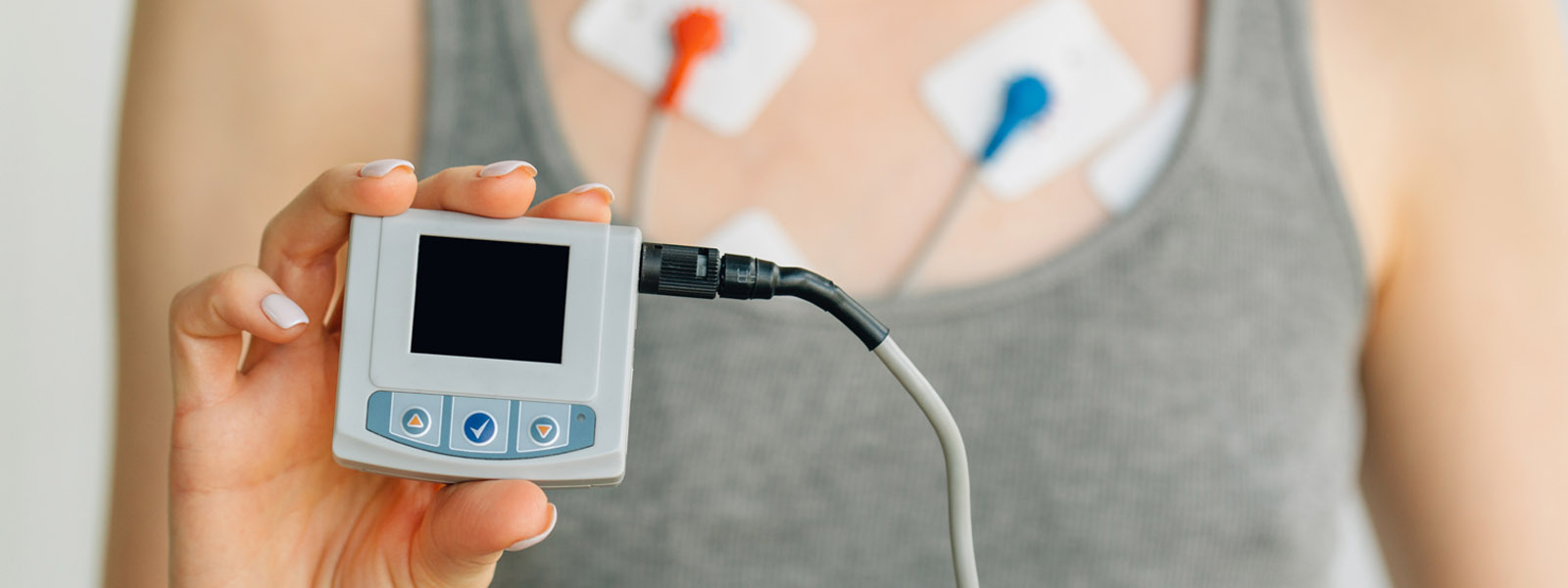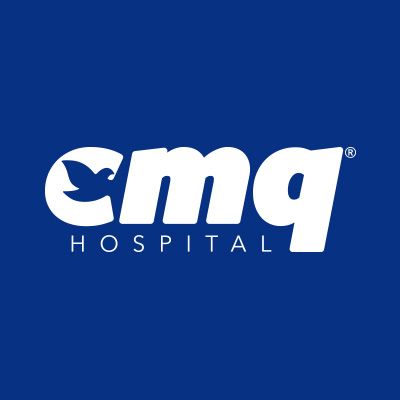Holter Monitor for your Heart at Hospital CMQ: Everything You Need to Know
How a Holter Monitor Helps Detect Heart Problems
The Holter Monitor is a key study for the diagnosis of cardiac disease. This technique is used to monitor the rhythm and electrical activity of the heart during a given period, usually 24 or 48 hours. Because of this, the Holter monitor provides a continuous record of your heart. This allows our physicians to detect irregularities that might go unnoticed in other studies, such as the electrocardiogram.
At Hospital CMQ, we have a team of cardiology and echocardiography specialists ready to offer you accurate and reliable diagnoses. Keep reading and learn everything you need to know about the Holter monitor: how it works, the types of monitors, how to prepare for it, and what to expect from the results.
Did you know?
In Mexico, heart diseases such as arrhythmias affect thousands of people every year. According to data from the National Institute of Cardiology, this type of condition is one of the main causes of medical consultation and hospitalization. For this reason, studies such as the Holter Monitor play a valuable role in early detection and timely treatment.
What Is a Holter Monitor?
The Holter Monitor is a medical test that monitors the electrical activity of the heart continuously for 24 hours or more. It works through a small portable device placed on your chest with several adhesive electrodes, similar to those used in an electrocardiogram (ECG). However, unlike a traditional ECG, which only records the heart rhythm for a few seconds, the Holter allows the detection of irregularities that may go unnoticed.

This study is especially useful for diagnosing problems such as arrhythmias, episodes of tachycardia or bradycardia, and irregular palpitations. In addition, Holter monitoring is a completely painless, safe, and noninvasive procedure. While you are using it, you can continue with your usual activities, except for showering or swimming. Once 24 hours have passed, the recorded data is analyzed by our Cardiologists at Hospital CMQ, who will determine whether or not there are alterations in your heart rhythm and whether you require any medical treatment.
If you or a family member experiences irregular heartbeats, dizziness, or fainting, we recommend that you go to your nearest cardiology unit and request an evaluation to see if you are a candidate for a Holter study.
How Does a Holter Monitor Work? Step by Step
As mentioned before, the Holter heart monitor is a simple, safe, and non-invasive procedure that is used to track your heart for 24 hours or more. Here, we explain the steps for this test:
- Preparation: Before placing the device, the specialist will clean the skin in the area where the electrodes will be attached (usually on the chest).
- Holter placement: Once the electrodes are set, they will be connected to the Holter Monitor. Once the device is on, it will begin recording your heart activity.
- Start of the Study: During the monitoring period (24 hours or 48 hours) you should continue with your normal daily routine, with some exceptions such as showering or swimming. We also recommend that you keep a diary of your symptoms and activities. If you experience dizziness, palpitations, or other symptoms, write them down in a notebook, along with the time.
- End of the Study: After the period stated by your specialist, you will have to return to the hospital to have the Holter monitor removed. Removing the device does not cause pain.
- Analysis of Results: The data from your Holter monitor is sent to a system where it will be analyzed by our cardiologists. They will be in charge of reviewing the records and detecting any irregularities. Based on these findings, they determine if there is any alteration and if it is necessary to perform complementary studies or initiate a treatment.
- Results: Generally, the results of the Holter study are available in a few days. The specialist will meet you at the hospital to explain the findings and the steps to follow.
Meet Our Specialists at Hospital CMQ who Perform and Interpret Holter Monitor Results
At Hospital CMQ, we have a team of highly trained Cardiologists who perform and interpret Holter monitor studies with accuracy and care. Our goal is to provide you with a reliable diagnosis and an appropriate treatment plan for the care of your cardiac health.
Types of Holter Monitors: Which One Is Right for You?
There are different types of Holter Monitors. However, the choice of the most appropriate one will depend on your symptoms, your doctor’s recommendation, and the frequency with which your cardiac disturbances occur. The most common types of Holter are:
| 24-hour or 48-hour Holter This is the most common type of Holter. It records the heart's electrical activity continuously for one or two days. What is it recommended for? - Detection of arrhythmias. - Evaluation of symptoms such as palpitations, dizziness, or fainting. - Monitoring heart rhythm after a heart attack or heart surgery. | Prolonged or Extended Holter This type of Holter allows longer monitoring to detect infrequent arrhythmias that might not show up on a 24-48 hour Holter. What is it recommended for? - Patients with sporadic arrhythmia symptoms. - Evaluation of heart rate in different daily activities and during sleep. - Detection of alterations that might not be evident on a standard Holter. |
| Intermittent Holter Unlike the conventional Holter, this device does not record continuously, but the patient activates the monitor only when he/she experiences symptoms. It can be worn for weeks or even months. What is it recommended for? - Cases in which a standard Holter did not show alterations, but symptoms persist. - It allows long-term monitoring without the need for continuous recording. | Implantable Loop Recorder (ILR) Holter It is placed under the skin and can record cardiac activity for months or even years. What is it recommended for? - Detection of severe or dangerous arrhythmias. - Evaluation in patients with unexplained fainting. - Long-term monitoring in patients at high risk of arrhythmias. |
Remember that the choice of the type of Holter will depend on the frequency of your symptoms and the evaluation of your specialist physician. At Hospital CMQ, our cardiologists will guide you in the best option to obtain an accurate diagnosis and guarantee the care of your heart. Schedule your appointment today and get the best cardiac monitoring with the most advanced technology.

Holter Monitor Results: Understanding Your Holter Monitor Results
Once the study is completed, a report is generated with charts and records showing how your heart was working during the monitoring period. But what do these results mean? Here’s how to interpret the most common images and data that appear in a Holter report.
- Heart Rate
One of the first data shown by the Holter report is the behavior of your heart rate throughout the day. Possible alterations detected by the Holter are: tachycardia, when the heart rate is higher than 100 beats per minute without an apparent cause, and bradycardia, when the rate is lower than 60 and generates symptoms such as dizziness or fainting.
- Heart Rate Intervals or Variability
The Holter report shows heart rate variability, that is, how your heart rate changes at different times of the day. Normal variability indicates that the heart responds appropriately to activity and rest. While a reduced variability may be related to heart problems or disturbances in the nervous system.
- Arrhythmia Episodes
The Holter also records the presence of irregular heartbeats or arrhythmia episodes, which may be sporadic or repetitive. If the Holter report shows arrhythmias or other irregularities, your physician will indicate whether further testing or treatment is necessary.
How to Prepare for a Holter Monitor Test
The Holter study is a simple, noninvasive test. However, to obtain accurate results and ensure that the device works properly, it is important to follow some recommendations before and during the study. To prepare properly, it is advisable to shower before your appointment, as you will not be able to get wet during the monitoring hours. Avoid using creams or lotions to ensure proper adhesion of the electrodes and wear comfortable, loose-fitting clothing. Also, inform your physician of any medications you are taking, as they may alter your heart rhythm.
During monitoring, you can continue with your daily routine, but avoid activities that involve excessive sweating or contact with water. We also recommend that you keep a record of symptoms such as palpitations, dizziness, or chest pain. Once the monitoring is complete, you should return to the Hospital so that the specialists can remove the device and analyze the data recorded to identify possible alterations in your heart rhythm and determine if additional studies are necessary or recommend treatment.
If you need to know more about your cardiovascular health, schedule your appointment at Hospital CMQ and get an accurate diagnosis with the Holter Monitor Study.
Holter Monitor vs. Other Cardiac Tests
When it comes to detecting heart conditions, different tests serve different purposes. For example, one of the most common tests is a standard EKG. A quick test that measures your heart’s electrical activity for just a few seconds, making it useful for identifying immediate heart rhythm abnormalities. However, some irregular heartbeats or arrhythmias may not appear during an EKG. That’s where the Holter Monitor test comes in. As we mentioned before, this test continuously records your heart’s electrical activity for 24 to 48 hours or longer, increasing the chances of detecting irregularities that might not be caught in a standard EKG.
On the other hand, an Echocardiogram (Echo) is different because it uses ultrasound technology to create moving images of the heart, helping doctors assess its structure, size, and function rather than just its electrical activity. While an EKG and Holter Monitor are primarily used to diagnose arrhythmias and electrical issues, an Echocardiogram is more useful for identifying heart valve problems, heart failure, and structural defects. At Hospital CMQ, our Cardiology Department ensures that each patient receives the most appropriate test based on their symptoms, medical history, and diagnostic needs. Book your appointment today!
Frequently Asked Questions About the Holter Monitor
Most patients wear it for 24 to 48 hours, but some may require up to 7 days for better results.
No, you cannot get the device wet. You should shower before your appointment and avoid water while wearing it.
Try to reattach it. If the issue persists, call your doctor for assistance.
No, you can continue your normal routine, but avoid high-intensity workouts and excessive movement of the wires.
Yes, it can be used for children who need continuous heart monitoring.
You can schedule your test with our Cardiology Department at Hospital CMQ. Contact us today to book your appointment!








